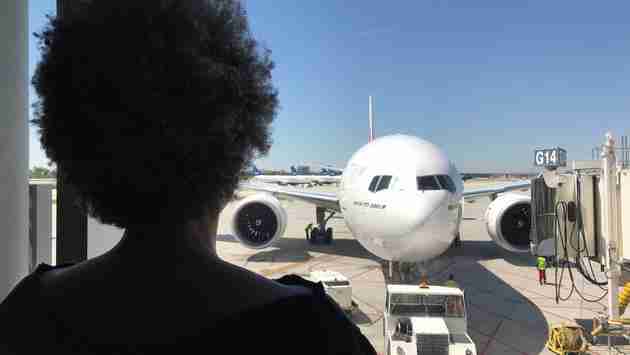As vaccination counts climb and many of the world’s populations emerge from lockdown to greater degrees, it’s evident that people are eager to travel again, but newly released data suggests that their “whys” and “hows” have changed since pre-COVID times.

New research from Expedia Group reveals that the COVID-19 pandemic has triggered a shift in people’s viewpoints, priorities and preferences when it comes to travel. The study examined consumer attitudes and motivators across several specific segments of the industry: lodging, vacation rentals, air travel, car rentals and cruise travel.
For its inaugural Traveler Value Index , Expedia Group questioned 8,000 people across eight countries in order to, “understand the impact of the pandemic on traveler behavior and how COVID-19 will continue to influence booking decisions,” as Ariane Gorin, president of Expedia for Business, wrote.
The study found that a high percentage of consumers are budgeting more for travel, are willing to adopt vaccine passports, and will continue to seek guarantees of their personal safety and financial security. Respondents also demonstrated an increased inclination toward selecting travel providers and experiences that closely reflect their personal values.
Researchers sought to rank the relative importance of seven travel-related values that influence consumers’ decisions as the world moves away from a COVID-dominated climate. These were the ability to get a full refund; atypically low pricing; contactless experiences; environmentally friendly policies; enhanced cleaning and disinfection; flexible booking change policies; and premium benefits and upgrades.
Beyond Pricing
The Value Index study yielded some surprising findings, including that price considerations have been deposed as the foremost motivating factor when making vacation bookings. The shift in consumer values was remarkably consistent across the global markets surveyed, with the emphasis shifting away from finding the lowest prices to ensuring booking flexibility and product cleanliness. Essentially, post-pandemic travelers now rank the guarantee of full refunds and enhanced cleaning protocols above all other considerations.
“As vaccination rates rise and borders open across the globe, people are ready and eager to travel. However, the months of uncertainty are weighing on their travel decisions and shifting the conventional belief that price is the top driver of bookings,” said Gorin. “These insights show people want to book with trusted travel providers that will deliver on their experiences, keep them safe, and protect their financial investments.”
Travel Timing
Travelers’ desires were also shown to be changing in terms of the frequency and duration of their trips. Of those surveyed, 41 percent plan to take shorter, but more frequent, trips in the future, with 60 percent sticking to domestic travel in the short-term, though 27 percent are considering traveling internationally within the next 12 months. In fact, 70 percent are comfortable with the concept of a vaccine passport to facilitate travel to foreign countries.
Something New
After spending more than a year involuntarily tethered to their close-to-home comfort zones, people now crave a heightened sense of escape and are looking to seize the moment. There’s an increased desire for new and novel experiences over nostalgic destinations, with 75 percent of respondents saying they’re likely to choose a travel destination they’ve never visited before and 22 percent seeing themselves springing for a once-in-a-lifetime type of trip.
Prioritizing Vacations
Due to worldwide economic disruption, it has hitherto been unclear how much discretionary income people would have available to put toward travel. But, perhaps because many vacation budgets went unspent last year, people are now making travel a financial priority. More than 34 percent of respondents said they have larger travel budgets now than in 2020 and 18 percent expect travel to be the item they spend the most money on this year. Thirty-six percent even said they would trade a pay raise for more vacation days.
Personal Values
The Traveler Value Index also revealed that consumers are continuing to selections that reflect their own personal values when booking their travel experiences. For instance, 59 percent said they are willing to spend more to ensure that their trip is greener and more sustainable, while 65 percent are more likely to book with travel providers that identify their practices as inclusive.
Select Variances
There were, however, notable differences in consumer sentiment and behavior between certain demographics, including geography, age, gender and trip type. For instance, when it comes to hotel stays and air travel, respondents under 40 in the U.S. and Japan ranked ‘enhanced cleaning’ as most important, with contactless experiences and premium benefits also topping their lists, indicating that younger groups are less focused on refunds and low pricing. Under-40 travelers across the board placed a higher value on contactless experiences, first-class benefits and environmentally friendly policies, compared to older generations. And, of the segments studied, it was only cruise passengers across numerous global markets who ranked low pricing as their top value.

Leave a Reply